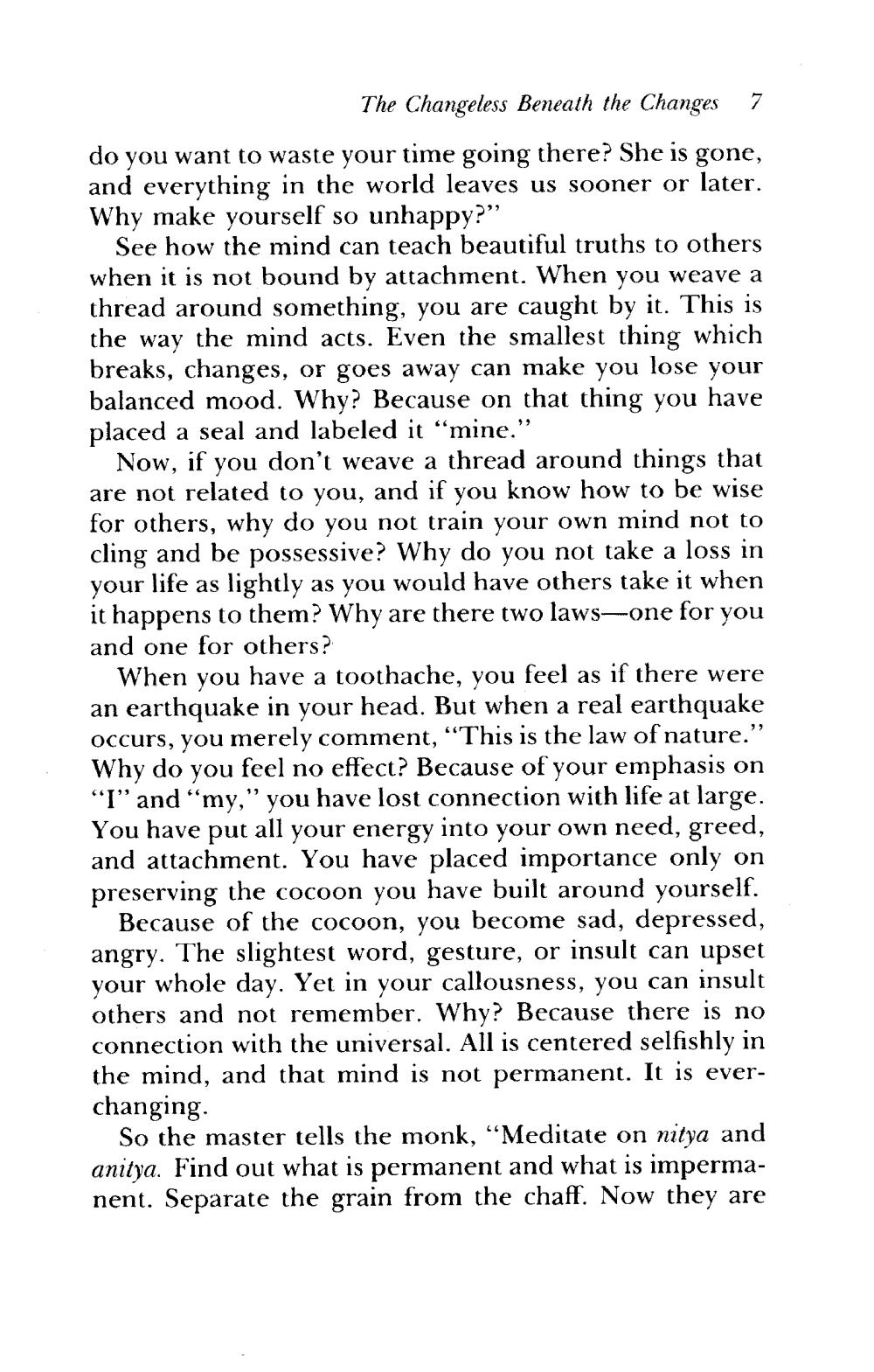________________
The Changeless Beneath the Changes 7 do you want to waste your time going there? She is gone, and everything in the world leaves us sooner or later. Why make yourself so unhappy?”
See how the mind can teach beautiful truths to others when it is not bound by attachment. When you weave a thread around something, you are caught by it. This is the way the mind acts. Even the smallest thing which breaks, changes, or goes away can make you lose your balanced mood. Why? Because on that thing you have placed a seal and labeled it "mine."
Now, if you don't weave a thread around things that are not related to you, and if you know how to be wise for others, why do you not train your own mind not to cling and be possessive? Why do you not take a loss in your life as lightly as you would have others take it when it happens to them? Why are there two laws—one for you and one for others?
When you have a toothache, you feel as if there were an earthquake in your head. But when a real earthquake occurs, you merely comment, “This is the law of nature." Why do you feel no effect? Because of your emphasis on “I” and “my,” you have lost connection with life at large. You have put all your energy into your own need, greed, and attachment. You have placed importance only on preserving the cocoon you have built around yourself.
Because of the cocoon, you become sad, depressed, angry. The slightest word, gesture, or insult can upset your whole day. Yet in your callousness, you can insult others and not remember. Why? Because there is no connection with the universal. All is centered selfishly in the mind, and that mind is not permanent. It is everchanging.
So the master tells the monk, “Meditate on nitya and anitya. Find out what is permanent and what is impermanent. Separate the grain from the chaff. Now they are




